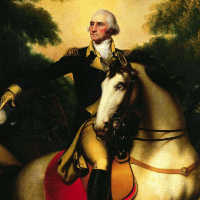 Social Studies
Social Studies
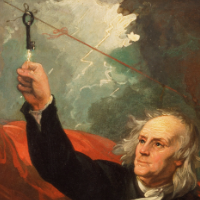 Science
Science
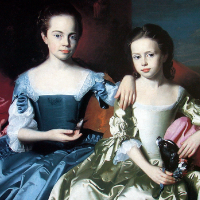 Art
Art
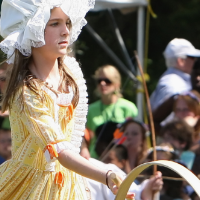 PE
PE
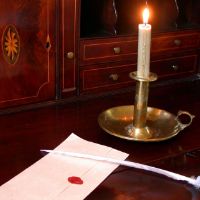 Language Arts
Language Arts
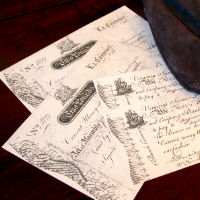 Math
Math
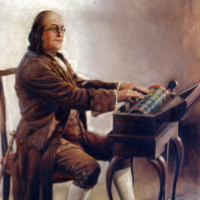 Music
Music
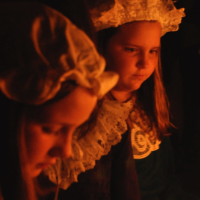 Patriots Day
Patriots Day
LANGUAGE ARTS
Stories connect students to the lives of the 18th century.
- Students are riveted by an historical Indian tale that sheds light on the character of a Patriot leader…
- They see the world through the writings of children from that time…
- Discover the words that moved the hearts of an army…
- Devise the best solutions they can for issues that faced 18th century Americans.
Lesson: Salem Poor
Introduces students to the skill of discerning slant in written or spoken articles.
Two Different Views
- Students hear a brief article about Salem Poor and discuss their understanding of it and their conclusions about Mr. Poor.
- They then read a second version of the same article, one which brings them to very different perceptions of this Patriot, though the basic facts remain the same.
- They analyze the subtleties that colored their conclusions.
The Truth
Salem Poor’s heroic actions at the Battle of Bunker Hill garnered him the highest praise from Colonel William Prescott and thirteen other officers.
The Subscribers beg leave to Report to your Honorable House (Which We do in justice to the Character of so Brave a man) that under Our Own observation, we declare A Negro Man Called Salem Poor of Col. Fryes Regiment, Capt. Ames. Company in the late Battle of Charleston, behaved like an Experienced Officer, as Well as an Excellent Soldier, to Set forth Particulars of his Conduct would be Tedious, We Would beg leave to say in the Person of this Negro Centers a Brave & gallant Soldier.”

Extensions
Analyzing other examples and creating articles with and without slant.
18th Century Journal Writing
Students keep a journal designed to hone writing skills, expand vocabulary, and develop analytical thinking. The journal, though, is also one of the main ways that students apply what they are learning about life in Revolutionary America, character traits they admire, and principles they may use to guide their own behavior. Throughout the curriculum, students use their journal to solve problems that 18th century Patriots faced.
In their journals, students struggle with the best ways to handle divided loyalties in Revolutionary America. They flip the page and consider the same issue in their lives today.

Divided Loyalties
The American Revolution divided people everywhere. In every community, among close friends, even within families, people of good character found themselves at odds over allegiance to the Patriot cause or Britain. Handling the resulting conflicting loyalties was a crucial challenge, often with life and death consequences.
Evidence strongly indicated that it was Mrs. Gage, the otherwise loyally devoted and honorable wife of the British commander, who warned the Patriots that the British soldiers would attack Lexington and Concord. Students learn why she did so and the devastating cost to her for her actions.

Lesson: Phillis Wheatley
Reveals a little-known correspondence between a freed slave poet and George Washington.
Phillis Wheatley was a freed slave and the first African American in history to have her work published. In 1775, she honored Washington with one of her works. The lesson about the correspondence between her and General Washington integrates history, character assessment, poetry analysis, race relations, and biography.
A Letter to General Washington
Sir,
I have taken the freedom to address your Excellency in the enclosed poem, and entreat your acceptance, though I am not insensible of its inaccuracies…. Your generosity, therefore, I presume, will pardon the attempt. Wishing your Excellency all possible success in the great cause you are so generously engaged in. I am,
Your Excellency’s most obedient humble servant,
Phillis Wheatley
An Excerpt from the Poem
To His Excellency, General George Washington
by
Phillis Wheatley, 1776
Celestial choir! enthron’d in realms of light, Columbia’s scenes of glorious toils I write. While freedom’s cause her anxious breast alarms, She flashes dreadful in refulgent arms. See mother earth her offspring’s fate bemoan, And nations gaze at scenes before unknown! See the bright beams of heaven’s revolving light Involves in sorrows and veil of night!
Phyllis’s letter and poem arrived while Washington was working exhaustingly long hours, fighting to create order from utter chaos, yet he replied with the same manners he would have extended to leading gentlemen and ladies whom he held in highest respect.
Mrs. Phillis,
Your favour of the 26th of October did not reach my hands ’till the middle of December. Time enough, you will say, to have given an answer ere this. Granted. But a variety of important occurrence, continually interposing to distract the mind and withdraw the attention, I hope will apologize for the delay, and plead my excuse for the seeming, but not real neglect.
I thank you most sincerely for your polite notice of me, in the elegant Lines you enclose….
If you ever come to Cambridge, or near Head Quarters, I shall be happy to see a person so favoured by the Muses, and to whom Nature has been so liberal and beneficent in her dispensations.
I am, with great Respect, etc.
George Washington
